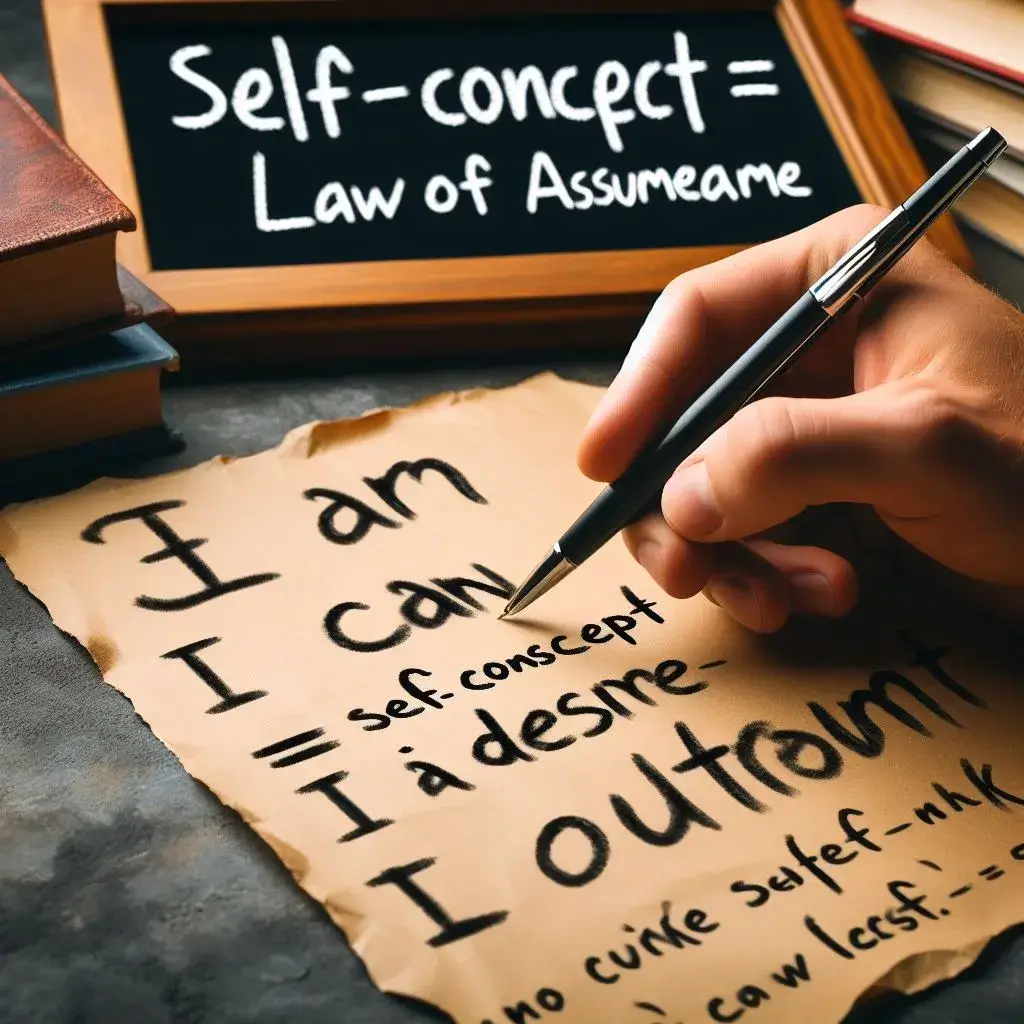Self Concept
Self-concept refers to the mental image or idea one has about themselves, including attributes, beliefs and feelings. It encompasses how we perceive and evaluate ourselves. The law of assumption proposes that our self-concept strongly influences what we assume about ourselves and our abilities, which then shapes our experiences and behaviors. In essence, we tend to behave consistently with our inner view of who we are.
For example, research studies have found that students who believe they are more intelligent or likely to succeed put in more effort and typically get better grades than those with lower self-confidence in their abilities (Craven et al, 1991). This demonstrates how our assumptions linked to self-concept can become self-fulfilling prophecies.
I already discuss about self concept in details you can check out!
What is Law of assumption in simple words?
In simple terms, the law of assumption states that our assumptions about ourselves and reality strongly influence what happens in our lives. It suggests that:
- We each hold beliefs and assumptions about who we are, what we are capable of, and how the world works.
- These assumptions shape our expectations, mindset, and self-perception. They form our “inner world”.
- Our outer experience of life, including what we attract and how we interact with others, tends to mirror and validate our inner assumptions.
- Positive assumptions that we are worthy, capable, and that good things are possible for us help create self-fulfilling prophecies where we achieve more and see opportunities.
- Negative assumptions like believing we aren’t good enough or that problems will happen can lead us to unconsciously act in ways that confirm those negative beliefs.
So in essence, the law of assumption says the pictures and beliefs we hold about ourselves in our mind get reflected back to us in our external reality and day to day experiences. Having an empowering, optimistic mindset becomes a self-fulfilling prophecy through how we act and what we manifest in the world. Our assumptions have power to shape our lives.
Difference between self concept and Law of assumption
Self-Concept:
- Refers to a person’s mental model/perception of who they are – their traits, abilities, self-image, self-esteem.
- Develops through life experiences, relationships, perceptions of how others see you.
- Includes evaluating both positive and negative attributes (“I am smart but also shy”).
- Relatively stable but can evolve as people mature or have new experiences.
Law of Assumption:
- Refers to the theory that our assumptions/beliefs shape reality by becoming self-fulfilling prophecies.
- Focuses more on the assumptions and expectations we hold, both positive and negative.
- These assumptions guide behavior, mindset, and interpretation of events unconsciously.
- Positive assumptions attract positive outcomes while negative ones attract negative.
- Assumptions have more fluid, situation-based qualities versus a stable self-concept.
Is law of assumption powerful?
The law of assumption is a powerful tool that can help shape our self-concept and determine our reality. It suggests that our beliefs and assumptions about ourselves and the world around us have a significant impact on our experiences and outcomes. Simply put, what we assume to be true becomes true for us.
For example, if you assume that you are a confident and capable individual, you are more likely to act in ways that reflect this belief, and others are more likely to perceive you as such. On the other hand, if you assume that you are incompetent or unworthy, you may unconsciously sabotage your own success and reinforce negative self-perceptions.
Research has shown that our self-concept and assumptions can have a profound impact on our mental and physical health, as well as our performance in various domains. For instance, a study published in the Journal of Personality and Social Psychology found that individuals with a strong sense of self-efficacy (i.e., belief in their ability to succeed) were more likely to achieve their goals, persist in the face of obstacles, and experience positive emotions.
A real-life story that illustrates the power of the law of assumption is that of J.K. Rowling. Before she became a world-renowned author, Rowling was a struggling single mother living on welfare. Despite her difficult circumstances, she held onto the assumption that she was a talented writer and that her manuscript for Harry Potter would eventually be published. She persisted in the face of numerous rejections, and her assumption ultimately became a reality when the first Harry Potter book was published in 1997. Rowling’s unwavering belief in herself and her work transformed her life and inspired millions of readers around the world.
Refrences :
- Bandura, A. (1997). Self-efficacy: The exercise of control. New York: Freeman.
- Sheldon, K. M., & Elliot, A. J. (1999). Goal striving, need satisfaction, and longitudinal well-being: The self-concordance model. Journal of Personality and Social Psychology, 76(3), 482-497. doi: 10.1037/0022-3514.76.3.482
- Rowling, J. K. (1997). Harry Potter and the Philosopher’s Stone. London: Bloomsbury Publishing.



magnam ea velit laudantium repellat possimus praesentium accusamus dolorum et ut enim aspernatur dolore sed reprehenderit. totam molestiae nostrum possimus sint et nulla quasi tempora ratione sit faci
dolorem ea rerum illo laboriosam ut. repudiandae esse et nemo tenetur vitae possimus illum libero aperiam aliquam dolorum sequi nam. et est sequi non beatae quia. impedit id molestiae quo quod sint pa